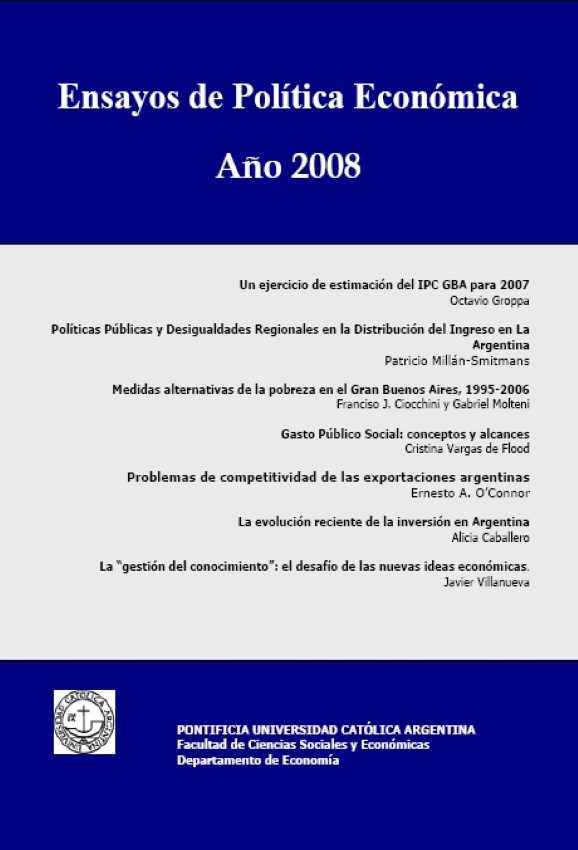La “gestión del conocimiento”: el desafío de las nuevas ideas económicas
Palabras clave:
Gestión del ConocimientoResumen
Desde los años noventa, se fueron planteando y con frecuencia aplicando una serie de propuestas nuevas relacionadas con el adecuado desarrollo y la aplicación del conocimiento en los sistemas productivos de las organizaciones empresariales. La idea subyacente, inspirada en los aportes de Schumpeter, ha sido la de poner en funcionamiento mecanismos relacionados con el conocimiento para lograr mantener y avanzar la competitividad de las empresas. Todo ello, a través de la llamada “gestión del conocimiento”.
Descargas
Citas
Archibugil, D and Michie, J. (1998). “Technical Change, Growth and Trade”, Journal of Economic Surveys, Oxford.
Bollinger, A. S. and Smith, R. D. (2001). “Managing Organizational Knowledge as a Strategic Asset”, Know Management.
Bradford De Long, J. (2001). “A Historical Perspective of the New Economy, Conference, Montreal, June.
Davenport, T. H., De Long, D. W. and Beers, M. C. (1998). “Successful Knowledge Management Projects”, Sloan Managemente Review, Vol. 39.
Davenport, T. H (1998). Some Principles of Knowledge Management, University of Texas.
Davenport, T. H. and Prusak, L. (1998). Working Knowledge, Harvard.
Dosi, G., Pavitt, K. and Soete, L. (1990). The Economics of Technical Change and International Trade.
Hasan, H. and Handzic, M. (edits) (2004). Australian Studies in Knowledge Management, Australia.
Handzic, M. and Hasan, H. (2005). “The Rise of Knowledge Management: In Pursuit of Excellence”, en Knowledge Management Through the Technology Glass, Australia.
Kothuri, S. (2002). Knowledge in Organizations.
Metcalfe, J. S. (1995). “Competitiveness and Comparative Advantage”, University of Manchester, June.
Nelson, R. R. and Winter, S. G. (1982). An Evolutionary Theory of Economic Change.
Nelson, R. R. (1998). “The Agenda for Growth Theory: A different point of view”, Cambridge Journal of Economics.
Neary, J. P. (2002). “Competitive Versus Comparative Advantage”; University College Dublin.
Nonaka, I. and Takeuchi, H. (1995). The Knowledge Creating Company.
Nonaka, I. and Konno, N. (1998). “The Concept of Ba; Building foundations for Knowledge Creation”, California Management Review, Vol. 40, Spring.
Polanyi, M. (1966). The Tacit Dimension.
Penrose, E. (1959). The Theory of the Growth of the Firm; Oxford.
Spender, J. C. (1996). “Making Knowledge the Basis of a Dynamic Theory of the Firm”; Strategic Management Journal.
Zack, M. H. (1999). “Developing a Knowledge Strategy”, California Management Review, Spring.
Zack, M. H. (1999). “Managing Codified Knowledge”; Sloan Management Review.
Descargas
Publicado
Cómo citar
Número
Sección
Licencia








